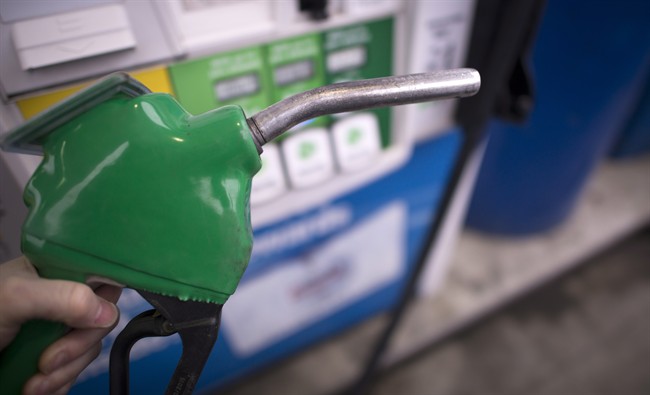EDMONTON – Premier Rachel Notley’s government defended its carbon tax Monday in the face of suggestions that it will cost families a lot more than expected.

Wildrose Opposition Leader Brian Jean accused the NDP of underestimating the domino effect of the tax and suggested municipalities and businesses could download added costs onto consumers.
“Rebate or not, families that buy food, buy clothes, rent or own their own property will all see their costs go up,” Jean told the house during question period.
READ MORE: Alberta Budget 2016: How much is this carbon tax going to cost me?
He noted that the City of Calgary is estimating the tax will cost it $6.5 million.
“There’s only one way for cities to pay for this tax: more borrowing or higher property taxes. Either way, it’s Alberta families who will pick up the tab for this government’s mismanagement.”
The tax, which is to begin Jan. 1, is the centrepiece of the government’s plan to reduce Alberta’s carbon footprint and give it more legitimacy as the province fights for energy infrastructure such as pipelines.
The tax will increase prices at the gas pump and will be tacked on to home heating bills. Gasoline prices will go up by 4.5 cents a litre next year and 6.7 cents a litre in 2018.
There will be a sliding scale of rebates for lower- and middle-income families. Anyone making more than $51,250 a year will pay the full cost of the tax, but 60 per cent of households will get that back.
- Some fixed mortgage rates are up despite hints of Bank of Canada cuts. Why?
- Budget 2024 sets up a ‘hard year’ for the Liberals. Here’s what to expect
- As Tim Hortons tests plastic-free lids, how eco-friendly are alternatives?
- Lynx Air says passenger refunds will hurt investors because of defiant contractor
In 2017, for example, the government estimates the carbon levy will cost a family $338 a year, but it will receive $360 to cover that off.
WATCH: What is the carbon tax and how much is it going to cost?
Progressive Conservative interim leader Ric McIver, picking up on Jean’s argument, said that economic cushion is dangerously threadbare.
“How could $22 possibly cover the additional cost of food, property tax, shelter, clothing, consumer goods and all the other costs that will pile up on Alberta families as a direct result of your regressive carbon tax?” McIver asked in the house.
READ MORE: Highlights from Alberta Budget 2016
Environment Minister Shannon Phillips said money is being immediately reinvested in projects such as public transit.
“There is $2.2 billion of new green infrastructure investments that will be recycled straight back into the economy supporting municipalities,” she said.
“Those investments are over and above existing investments and will help municipalities adjust.”
She said there will also be projects to encourage Albertans to be energy efficient.
Phillips said the plan is for a beneficient spiral: cities and taxpayers have more resources to go green, they then go greener, and pay less carbon tax as a result.
Alberta Party Leader Greg Clark said there isn’t enough known about the carbon levy to make accurate predictions on its impact.
READ MORE: Alberta budget 2016: Winners and losers
He said it doesn’t make sense for two-thirds of households to get a full rebate for something that is supposed to give them an incentive to reduce carbon.
“It feels more like a wealth transfer tax than a carbon tax.”
Clark also wants to see more details on what kinds of projects will be funded with the tax.

Comments